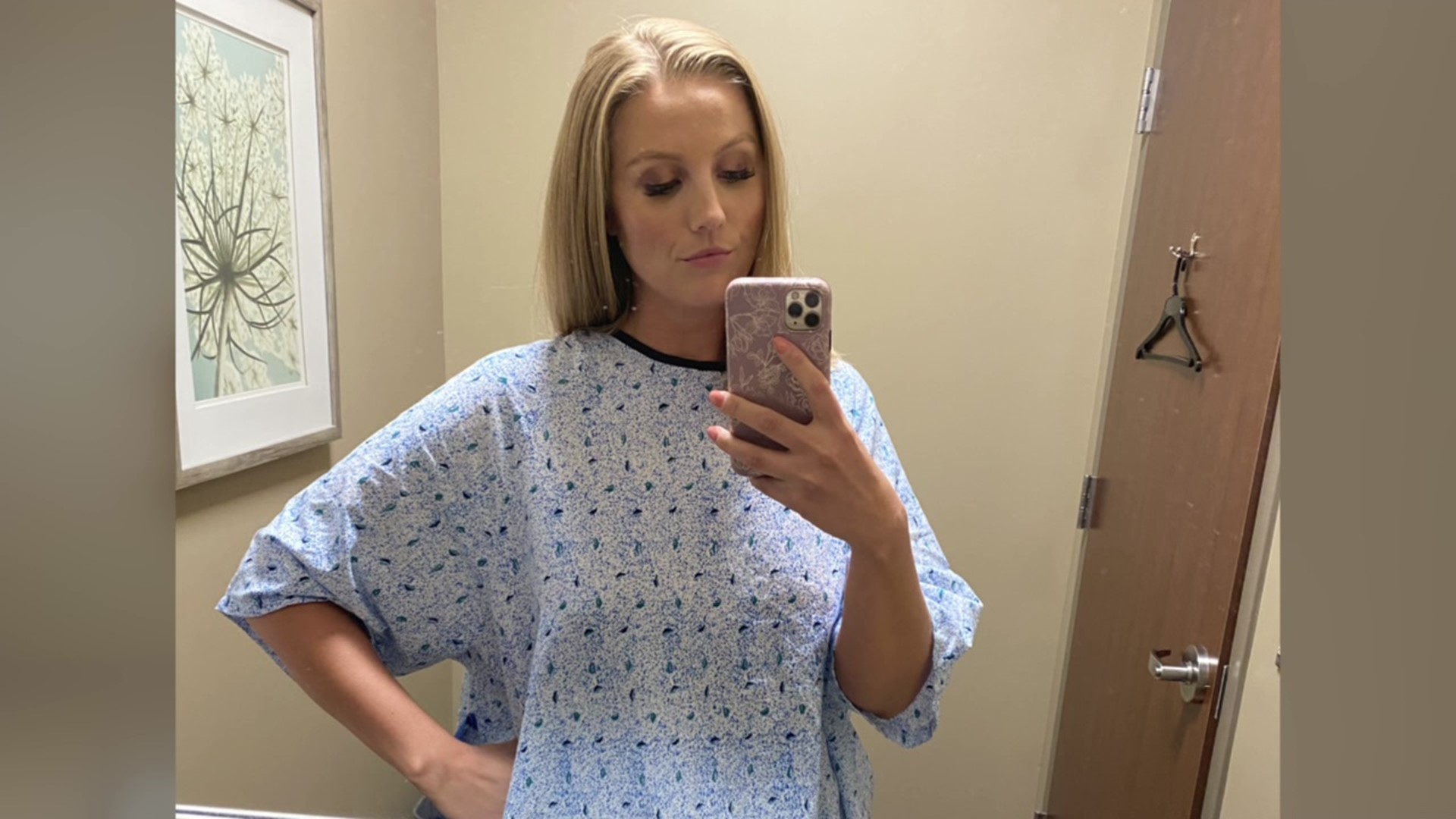LUZERNE COUNTY, Pa. — My job as a news reporter keeps me busy, traveling around northeastern and central Pennsylvania and telling stories.
But behind the scenes, I had medical struggles I couldn't explain.
Every time I stood up or bent over, it felt like my body's "check engine" light would come on. I got really dizzy, had tunnel vision and shortness of breath. Then came the fatigue, brain fog, and a sky-high heart rate.
It felt like I was going to faint from doing some of the most basic activities, and sometimes, I did.
After dealing with the symptoms for three months, I finally went to the doctor to get some answers. Test after test, my results came back normal, but my symptoms got worse.
One of my worst fainting episodes was captured on camera. I was waiting to go live when I started to get lightheaded."
Newswatch 16 anchor Lisa Washington was on the desk that evening.
"There was something in your delivery that caught my attention, and I thought, 'Something is not right.' Like, what is going on here? She is physically not OK," Lisa recalled.
That day I knew I needed to push even harder for answers.
The seventh doctor I saw was Dr. Deborah Sundlof, a cardiologist with Lehigh Valley Health Network. It only took her a few minutes of listening to me describe my symptoms and review my tests to say: You have POTS.
"POTS stands for postural orthostatic tachycardia syndrome, and it's something I think is under-recognized. The more you talk about it, the more you'll find that people have these symptoms and didn't know there was a name for it," Dr. Sundlof said.
"You're like, 'I'm going to see different doctors, cardiologists, and specialists.' Then you're like, 'I know what I have.' And I am like, 'OK, what do you have?' And you say, 'POTS.' And I'm like, 'OK, what is POTS?' I had never heard of it," Lisa said.
POTS is a form of dysautonomia, meaning it impacts all of the things your body does that you don't have to think about—blood pressure, heart rate, breathing, temperature regulation, and the list goes on. The vast number of symptoms makes this condition difficult for some doctors to diagnose.
"It's a bit of a masquerader, in that a lot of women or men will be diagnosed with anxiety or palpitations or something else instead of getting to the root of the problem, which is that you have an autonomic dysfunction," Dr. Sundlof said.
After posting about it on social media, I learned I wasn't alone. In fact, someone who sits across the room from me experiences the same thing.
"I was like, 'Wow, I just got that, too.' And wow, here is somebody else who has it, and maybe they will know what I am talking about," said Stephanie O'Malley, a producer for Newswatch 16.
For Stephanie, symptoms started with shortness of breath; then things got worse.
"I stood up really fast, and I got really dizzy, and I passed out. I went to the emergency room, and no one could figure out what was wrong with me," Stephanie said.
Stephanie had a similar experience. It took four doctors to finally put a name to the symptoms.
It's estimated nearly three million people in the United States have been diagnosed. Of those diagnosed, 90 percent are women.
"We're not really sure what causes POTS. But it seems like it could be brought on by pregnancy, trauma, a major surgery, or a viral infection, and we are actually seeing it with COVID," Dr. Sundlof said.
Doctors say POTS can also develop because of underlying health conditions.
There is no cure. Doctors rely on symptom management to help patients—things like high fluid and salt intake and some medications. But even with lifestyle changes, the symptoms can still persist.
"Some days, you're like, 'Alright, I'm taking my medicine, I'm eating what I'm supposed to eat, I'm doing everything, but it is still terrible.' It's hard to go on with your life when you still have to deal with all of this stuff, even though you are doing everything you can do about it," Stephanie said.
POTS isn't rare; it's just rarely heard of. We hope starting the conversation will help others.
"Now, more people know what's going on, and now we can talk about it," Stephanie added. "Now, maybe we won't have to wait so long to figure out what is wrong with us."

